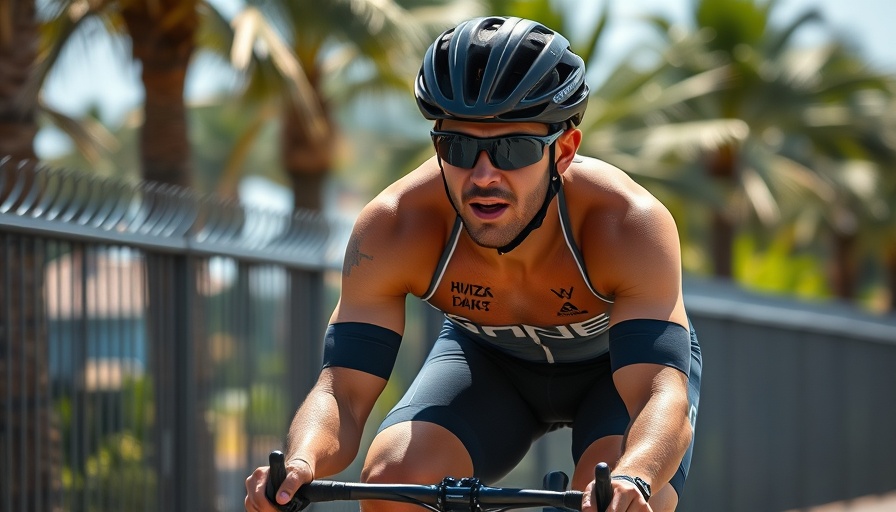
Revisiting a Controversial Comeback: Oscar Pistorius in the Spotlight
On June 1, 2025, Oscar Pistorius, a former Paralympic gold medalist, made headlines again as he participated in a triathlon in Durban, marking his first competitive appearance since his release on parole in January 2024. This come-back has stirred a mix of outrage and disbelief, with many questioning the appropriateness of his re-entry into public sport given his conviction for the murder of his girlfriend, Reeva Steenkamp, in 2013. The United Democratic Movement Women's Organisation (UDMWO) has notably condemned this event as a “heart-wrenching insult” to Steenkamp’s memory and victims of gender-based violence throughout South Africa.
The Actress’s Legacy and Advocacy Against Gender-Based Violence
Steenkamp's tragic death not only shook South Africa but also highlighted the country’s ongoing struggle with gender-based violence (GBV). With this issue reaching crisis levels, especially in a nation where statistics reveal that a woman is murdered every three hours, Pistorius's public appearance feels like a direct affront to all who have suffered from similar tragedies. Thandi Nontenja, UDMWO Secretary-General, articulated the sentiments of many, stating that allowing Pistorius to compete is particularly painful for families who have lost loved ones to GBV. This situation stirs a clear emotional response, reminding us all of the unresolved grief and anger that permeates communities affected by such violence.
A Broader Discussion on Redemption and Consequences
The core of the debate lies in the understanding of redemption and consequences within a society grappling with its criminal justice system. Pistorius's return raises pressing questions about accountability and societal forgiveness. For many, the notion of a public figure who has taken a life returning to the limelight is not merely uncomfortable but deeply unsettling. This controversy is further fueled by the perception that such a return might send a troubling message to potential offenders, especially as South Africa continues battling high rates of femicide and domestic violence.
Shifting Perspectives in South Africa’s Sport and Society
As debates ignite over Pistorius's participation in sports, it elicits the necessity to reassess South Africa's sports culture and how it intertwines with issues of morality and public approval. Notably, the sports community seldom addresses how criminal behavior intersects with athletic achievement, often leading to a disconnect between a sportsperson's personal integrity and public adoration. This marks an opportunity for a more profound inquiry into what it means to hold athletes accountable for their actions beyond their performance on the field.
Public Reaction and Social Media Implications
The public reaction has been heightened due to the pervasive nature of social media. As discussions surrounding gender-based violence and the further implications of Pistorius’s comeback play out online, these platforms act as both a battleground for opinion and a space for communal healing. Activists and concerned citizens have taken to social media to express their outrage and underscore the importance of not forgetting the lessons learned from the past tragedies associated with such figures. In a digital age where voices can be amplified, the backlash against Pistorius’s participation serves as a reminder of the collective conscience and its ability to mobilize against perceived injustices.
The Path Forward: Addressing GBV and National Healing
In light of this controversy, it is essential that South Africa continues its dialogue on GBV, seeks stronger policies, and fosters community-based initiatives aimed at reducing violence and empowering victims. Within this context, reflections on the electoral climate become crucial. The upcoming 2024 general elections could present an avenue for voters to prioritize gender equality and anti-violence policies, ensuring that the tragic loss of life is not met with silence but with actionable change.
In the journey towards healing, the integration of a comprehensive national strategy on GBV, supported by strong leadership and accountability from political figures—regardless of their prior actions—is imperative. Society must continue to challenge narratives that allow past transgressions to be overlooked in favor of sporting accomplishments, promoting a sustainable and just path forward for all.
 Add Row
Add Row  Add
Add 




Write A Comment